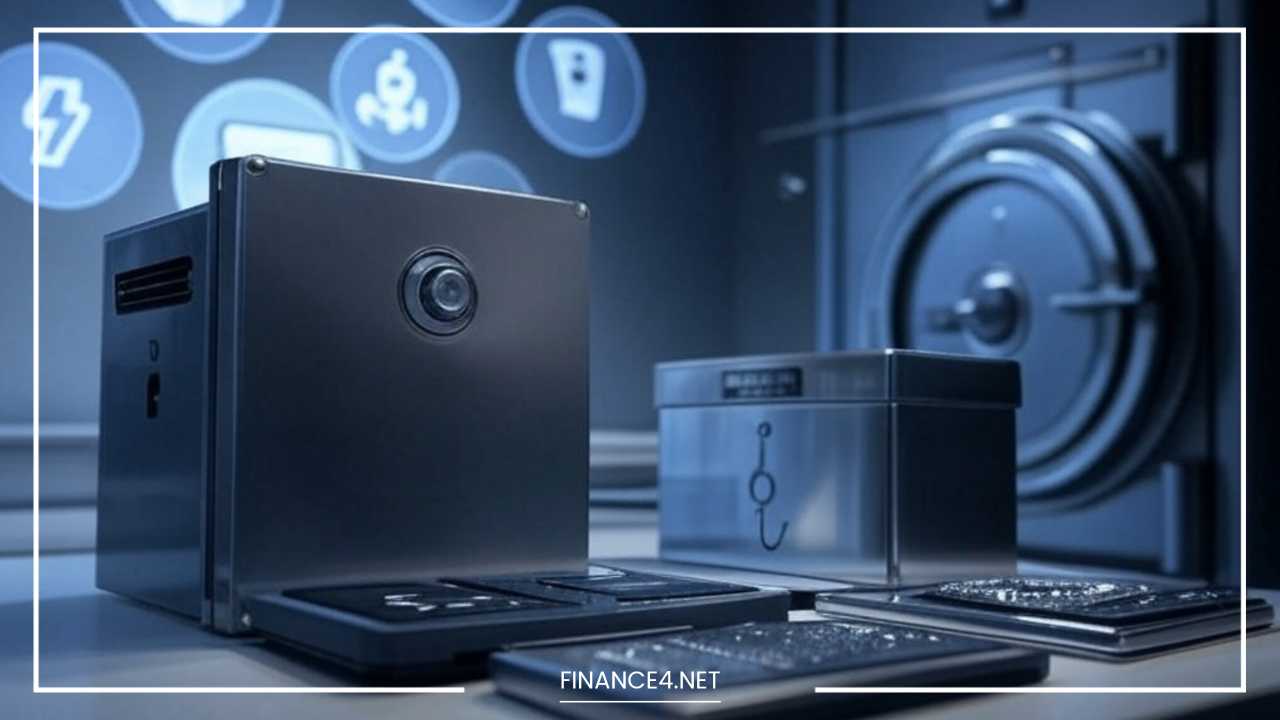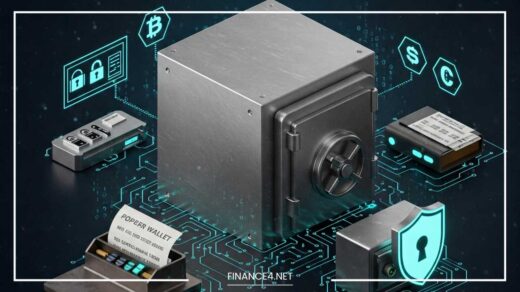Safest Ways to Store Private Keys

Store Private Keys
The Fort Knox of Crypto: Safest Ways to Store Private Keys
In the realm of cryptocurrencies, your private keys are the linchpin of your digital wealth. They are the cryptographic equivalent of your bank vault combination, your house keys, and your signature, all rolled into one.
Lose them, and you lose access to your funds forever. Compromise them, and you risk losing everything to malicious actors.
Therefore, understanding and implementing the safest methods for storing private keys is paramount for any cryptocurrency holder.
This article delves into the various storage options, examining their security strengths and weaknesses, and providing a comprehensive guide to safeguarding your digital assets.
Understanding the Threat Landscape
Before exploring storage solutions, it’s crucial to understand the potential threats to your private keys. Being aware of the possible risks allows you to better choose the appropriate storage method and take the necessary precautions.
1. Online Attacks
Online attacks are one of the biggest threats to your private keys. Since the internet is constantly evolving, hackers have increasingly sophisticated tools at their disposal to infiltrate systems, steal private keys, and compromise wallets. These include:
- Phishing: Phishing attacks trick users into revealing sensitive information like private keys by impersonating legitimate entities. Often disguised as fake websites or emails, these scams are one of the most common forms of theft in the cryptocurrency space.
- Malware: Malware can infect your devices and steal sensitive data, including private keys. Trojan horses, keyloggers, and ransomware are just a few examples of malicious software that can operate undetected until it’s too late.
- Keyloggers: These are a type of malware that logs every keystroke on a computer, enabling hackers to capture private keys entered into online wallets or exchanges.
- Exchange Hacks: While exchanges provide convenience, they also represent a huge point of vulnerability. Centralized exchanges are prime targets for hackers. Even if you store your private keys on an exchange, you risk losing your funds if the exchange is breached.
2. Physical Threats
While digital threats are important, physical threats can pose just as great a risk to your cryptocurrency holdings. These threats include:
- Theft: If someone gains access to your hardware wallets, paper wallets, or any physical backup, they can easily steal your private keys. Even if you are vigilant in protecting your digital assets, physical access to the storage device can result in a loss of funds.
- Fire or Flood: Natural disasters, such as fires, floods, or earthquakes, can damage physical storage devices, leading to the irretrievable loss of private keys. While digital wallets are not as vulnerable, physical backups—like paper wallets or metal seed storage—can be permanently destroyed by these events.
- Accidental Damage: Devices like USB drives and hard drives are also susceptible to accidental damage. Dropping or mishandling storage devices can corrupt or erase data, which could lead to losing access to your private keys.
3. Human Error
The human element is often the weakest link in the security chain. Common mistakes include:
- Accidental Deletion: It’s easy to mistakenly delete or overwrite important files, including wallet backup files and key storage. Without proper backups, these errors could result in permanent loss of funds.
- Misplacement: Forgetting where you stored your private keys, whether on paper or in a hardware wallet, can render you unable to access your assets. This is especially common when private keys are kept in multiple physical locations or insecure spots.
- Improper Handling: Even if you have backups, failing to store them in secure locations or improperly managing physical wallets can jeopardize the security of your cryptocurrency holdings.
4. Social Engineering
This threat revolves around manipulation and deceit. Social engineering attacks aim to trick individuals into divulging private information, such as private keys, or taking actions that lead to their compromise. Common tactics include:
- Phishing: As mentioned earlier, phishing emails or websites may masquerade as official communication from trusted platforms like exchanges or wallet providers, asking you to “verify” or “reset” your wallet details.
- Impersonation: Scammers may pose as customer support representatives or tech experts, claiming that your account has been compromised or offering “help” in securing your funds. These social engineering tactics are often used to steal private keys or access to wallets.
- Scare Tactics: Cybercriminals may use fear to manipulate victims. For example, they may claim that your funds are at risk unless you take immediate action by revealing your private key or transferring your assets to a different wallet.
Storage Options: A Detailed Breakdown
Given these threats, it’s essential to understand the different storage options available to you and their respective security profiles. Below, we break down the most common methods for storing private keys.
1. Hot Wallets (Online Wallets)
Hot wallets are cryptocurrency wallets that are connected to the internet. They include exchange wallets, web wallets, and mobile wallets. While they offer easy access and convenience, they come with substantial security risks.
Pros:
- Convenience: Hot wallets are ideal for users who frequently transact with cryptocurrency. You can send, receive, and trade assets quickly from any device with internet access.
- Ease of Use: Setting up and managing a hot wallet is typically straightforward, even for beginners. The user interface is often intuitive, and many platforms offer mobile apps for quick access.
Cons:
- Vulnerability to Online Attacks: Being connected to the internet means that hot wallets are vulnerable to phishing, malware, and other online attacks. If your private keys are stored online, they are at risk of being intercepted by hackers.
- Exchange Risks: When you store cryptocurrency on an exchange wallet, you are trusting the exchange to secure your funds. If the exchange gets hacked, you risk losing all of your assets.
- Third-Party Risks: Hot wallets usually require trusting a third party (such as a service provider). If the provider suffers a data breach or goes out of business, your funds could be compromised or lost.
Security Considerations:
- Use strong, unique passwords and enable two-factor authentication (2FA) for added protection.
- Limit the amount of cryptocurrency stored in hot wallets to reduce exposure to risk.
- Be cautious of phishing attacks. Double-check URLs and only access wallets through official apps or websites.
- Periodically review the security features and protocols of the wallet provider to ensure their security measures are up to date.
2. Software Wallets (Desktop Wallets)
Software wallets are applications installed on your computer, offering more control over your private keys than hot wallets. They are considered safer because you are not reliant on third parties.
Pros:
- Greater Control: You have full control over your private keys, as they are stored locally on your device.
- Relatively Easy to Use: Software wallets are user-friendly and offer many advanced features, such as transaction signing and the ability to manage multiple cryptocurrencies.
Cons:
- Vulnerable to Malware and Viruses: If your computer is compromised by malware, keyloggers, or viruses, your private keys could be stolen. This makes it crucial to maintain robust antivirus software and regularly scan your system.
- Backup Dependency: Software wallets require regular backups of your wallet file. If you lose your backups, you may permanently lose access to your cryptocurrency.
Security Considerations:
- Use trusted antivirus software and ensure that your operating system and wallet software are up to date.
- Encrypt your wallet file with a strong password to prevent unauthorized access.
- Back up your wallet regularly and store the backups in a safe, offline location.
- Never share your private keys with anyone. Keep your recovery phrase secure.
3. Hardware Wallets
Hardware wallets are physical devices designed to store private keys offline. These devices offer the highest level of security because they are immune to online attacks.
Pros:
- Offline Storage: Hardware wallets store your private keys offline, reducing the risk of online theft or hacking.
- Physical Confirmation: To authorize transactions, you must physically interact with the device, making remote attacks impossible.
- Resistant to Malware: Since the private keys never leave the hardware wallet, they are immune to malware on your computer or smartphone.
Cons:
- Initial Cost: Purchasing a hardware wallet requires a one-time investment, which may be a deterrent for some users.
- Physical Security: Hardware wallets must be stored securely to avoid theft, loss, or damage. If someone gains physical access to your device, they can steal your cryptocurrency.
- Learning Curve: While generally easy to use, hardware wallets can be intimidating for beginners who may not fully understand how they work.
Security Considerations:
- Always buy hardware wallets directly from the manufacturer to avoid tampering.
- Store the recovery seed phrase in a safe, secure location, separate from the device.
- Use a strong PIN to protect the hardware wallet and enable all available security features, such as passphrase protection.
- Be mindful of physical security. If you lose or damage your hardware wallet, you may lose access to your cryptocurrency unless you have backups of your recovery phrase.
4. Paper Wallets
A paper wallet is a physical document that contains both your private and public keys. They are completely offline and immune to online threats.
Pros:
- Completely Offline: Paper wallets are not connected to the internet, making them resistant to online threats like hacking or malware.
- Low Cost: Paper wallets are free to create and don’t require the purchase of any hardware or software.
- Ideal for Long-Term Storage: Paper wallets are perfect for people who want to store their cryptocurrency securely for extended periods without frequent access.
Cons:
- Vulnerable to Physical Damage: Paper is susceptible to fire, water, and other environmental factors. If your paper wallet is destroyed, you may lose access to your private keys.
- Inconvenient for Frequent Transactions: If you need to send cryptocurrency regularly, a paper wallet can be cumbersome to use, as you would need to manually enter the keys each time.
- Risk of Theft: If someone gains access to your paper wallet, they can easily steal your funds.
Security Considerations:
- Create paper wallets on a secure, offline computer to prevent exposure to malware.
- Use high-quality paper and ink to ensure durability.
- Store the paper wallet in a waterproof, fireproof, and secure location, such as a safe deposit box or a personal safe.
- Never take a digital picture of your paper wallet or store it digitally. Keep it strictly offline.
5. Metal Seed Storage
For added durability, some people opt to store their recovery seed phrases on metal plates instead of paper. This prevents the recovery phrase from being destroyed by environmental factors like fire or water.
Pros:
- Highly Durable: Metal is resistant to water, fire, and other environmental damage, making it a safer long-term solution for storing recovery phrases.
- Enhanced Security: Metal seed storage offers more robust protection compared to paper, ensuring that your recovery phrase remains intact.
Cons:
- Initial Cost: Metal seed storage devices are typically more expensive than paper wallets.
- Storage Location: While more durable, metal storage still requires a secure location to prevent theft.
Security Considerations:
- Use high-quality, corrosion-resistant materials for metal plates.
- Store the metal plates in a hidden, secure location to protect against theft or loss.
- Consider engraving the recovery phrase to ensure it remains readable over time.
Best Practices for Secure Key Storage
Regardless of the storage method you choose, these best practices are crucial for enhancing the security of your private keys:
- Offline is King: Prioritize offline storage when possible. Cold wallets like hardware wallets and paper wallets are ideal for long-term storage.
- Backup, Backup, Backup: Always create multiple backups of your private keys and recovery seed phrases. Store them in different secure locations to reduce the risk of loss due to fire, theft, or other disasters.
- Use Strong Passwords: Create long, complex passwords for all your wallets and accounts. Avoid using the same password for multiple accounts and consider using a reputable password manager to store them securely.
- Enable Two-Factor Authentication (2FA): Enable 2FA on any account that supports it to add an extra layer of protection. Use authenticator apps instead of SMS-based 2FA, as they are more secure.
- Educate Yourself: Stay up-to-date on the latest security threats and best practices. Knowledge is your first line of defense against attacks.
- Be Skeptical: Always be cautious of phishing scams, unsolicited offers, and social engineering tactics. Never share your private keys or recovery seed phrases with anyone.
- Use Layered Security: Implement multiple layers of security, such as combining hardware wallets with strong passwords and offline backups.
- Consider Geographically Separated Backups: Store backups in multiple locations, particularly if you live in an area prone to natural disasters.
- Regularly Audit Your Security: Periodically review your security measures and ensure that your private keys and backups remain secure and up-to-date.
Final Thoughts
Storing private keys securely is the cornerstone of responsible cryptocurrency ownership. There is no one-size-fits-all solution, and the optimal storage method depends on your individual needs, risk tolerance, and technical expertise.
By understanding the different storage options and implementing the best practices outlined in this article, you can significantly reduce the risk of losing your valuable digital assets.
Treat your private keys with the utmost respect, and you will be well on your way to safeguarding your crypto future.



